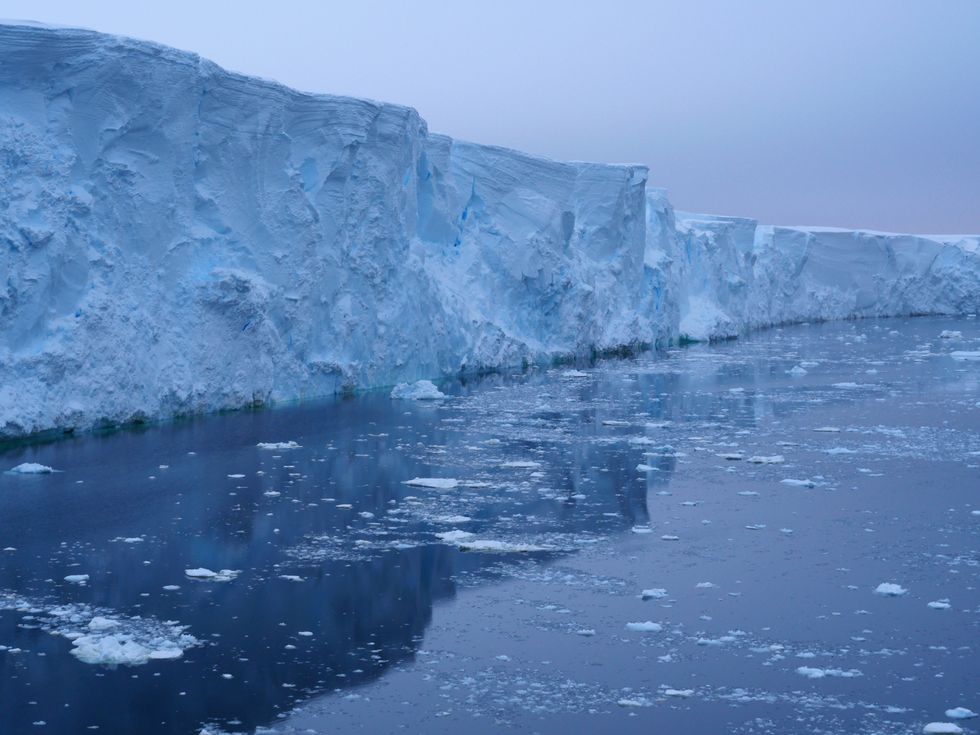Jake Brigstock
Sep 23, 2024
18 years of satellite imagery shows receding of Thwaites Glacier
content.jwplatform.com
A new science briefing has revealed there is a "grim outlook" for Thwaites Glacier in Antarctica, also known as the 'Doomsday Glacier', which if it melts could plunge parts of the world underwater.
Thwaites Glacier is a vast area of the West Antarctic Ice Sheet and is the same size as Great Britain or the US state of Florida.
It has been dubbed 'Doomsday Glacier' because of the threats it poses to Planet Earth if it were to melt, such as the possibility of sinking large areas of the planet's land mass.
Scientists have said if Thwaites Glacier, one of the largest and fastest-changing glaciers in the world, collapsed entirely then sea levels would rise by 65cm.
This may not sound like a lot, but a 2019 report stated that 44 per cent of the world's population lives within 150km of the coast, almost one in 10 people live in coasts less than 10m above sea level and more than 70 per cent of the planet's surface is already below sea level.
A project of UK and US scientists called International Thwaites Glacier Collaboration (ITGC) is aiming to predict the rate and magnitude of ongoing sea level rises that will have a huge impact on the hundreds of millions of people on coasts from Bangladesh to low-lying Pacific islands, from New York to London.

"Thwaites has been retreating for more than 80 years, accelerating considerably over the past 30 years, and our findings indicate it is set to retreat further and faster," said Dr Rob Larter of the ITGC who is also a marine geophysicist at the British Antarctic Survey.
"There is a consensus that Thwaites Glacier retreat will accelerate sometime within the next century.
"However, there is also concern that additional processes revealed by recent studies, which are not yet well enough studied to be incorporated into large scale models, could cause retreat to accelerate sooner."
Using underwater robots to take new measurements of the glacier, ITGC findings suggest Thwaites Glacier and much of the West Antarctic Ice Sheet could be lost by the 23rd century.
Dr Ted Scambos, US science coordinator of the ITGC and glaciologist at the University of Colorado, said: "It's concerning that the latest computer models predict continuing ice loss that will accelerate through the 22nd century and could lead to a widespread collapse of the West Antarctic Ice Sheet in the 23rd.
"Immediate and sustained climate intervention will have a positive effect, but a delayed one, particularly in moderating the delivery of warm deep ocean water that is the main driver of retreat."
If the whole West Antarctic Ice Sheet melted, it would raise sea levels by a staggering 3.3m.
How to join the indy100's free WhatsApp channel
Sign up to our free indy100 weekly newsletter
Have your say in our news democracy. Click the upvote icon at the top of the page to help raise this article through the indy100 rankings.
Top 100
The Conversation (0)














